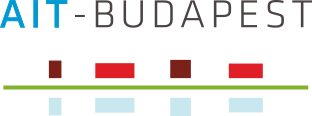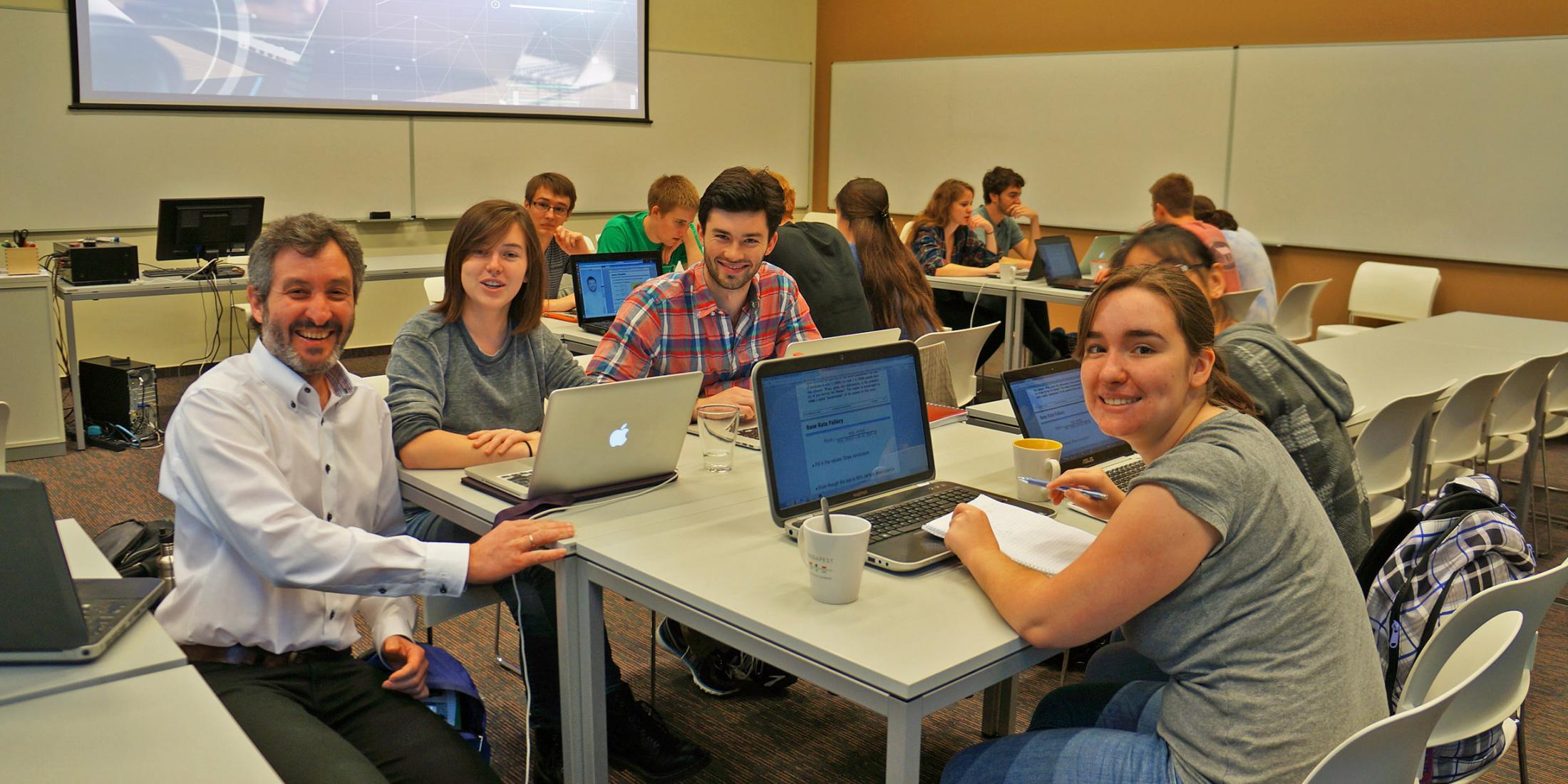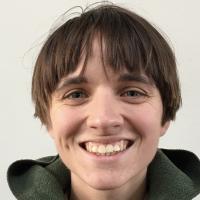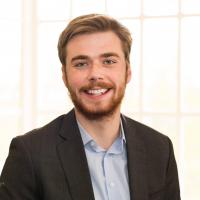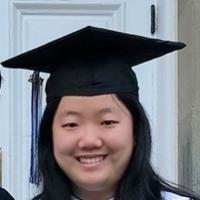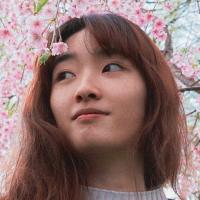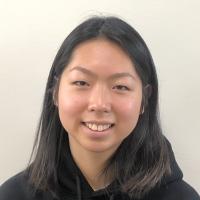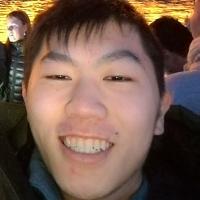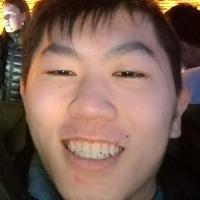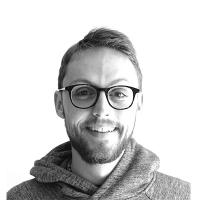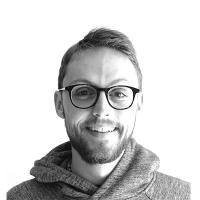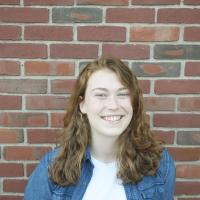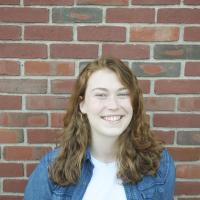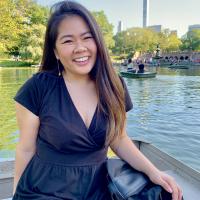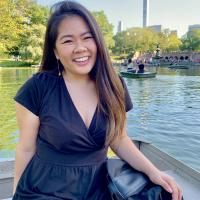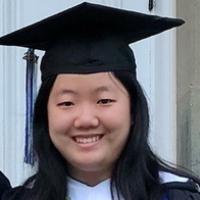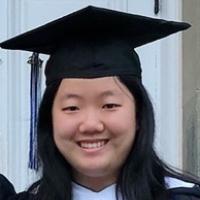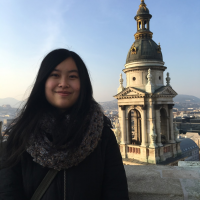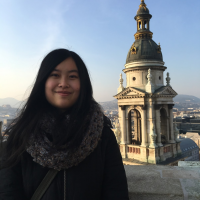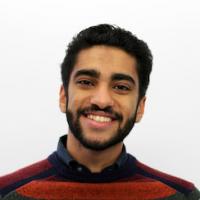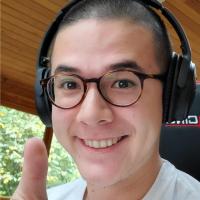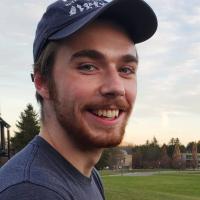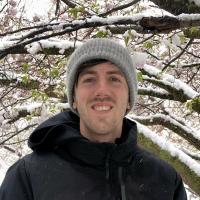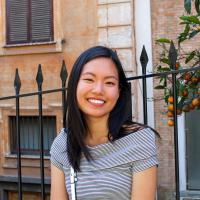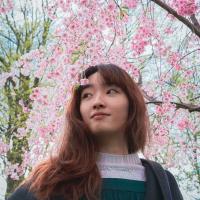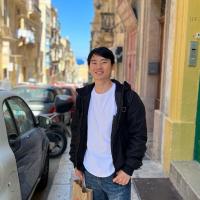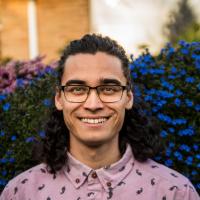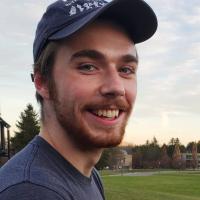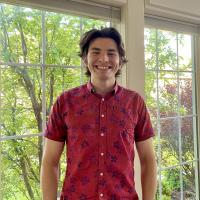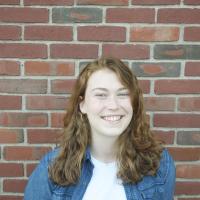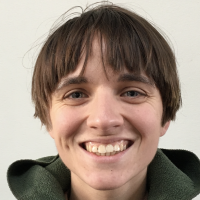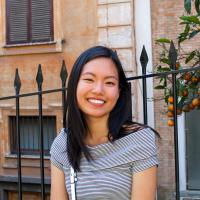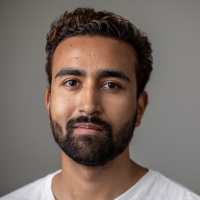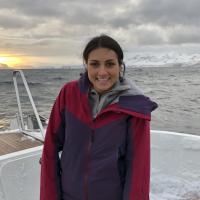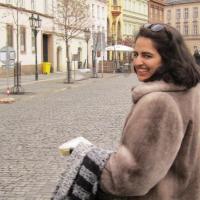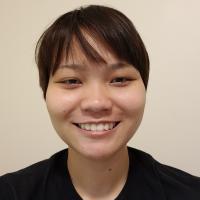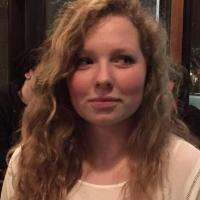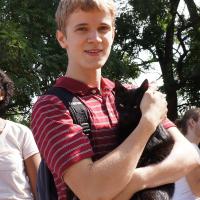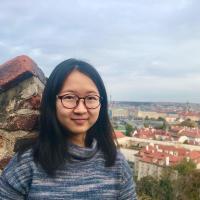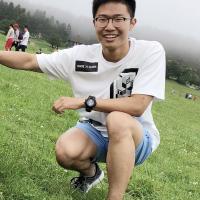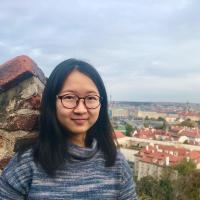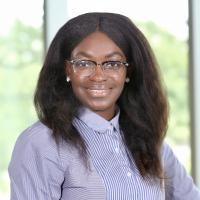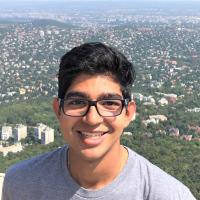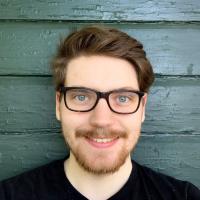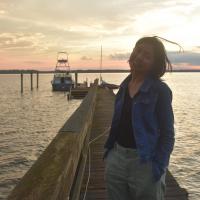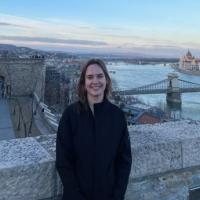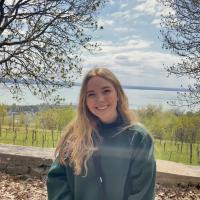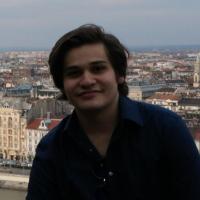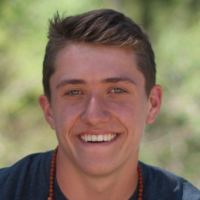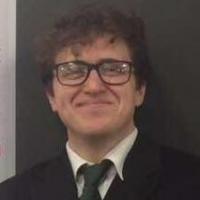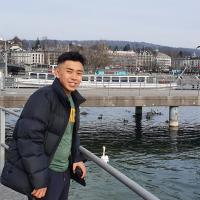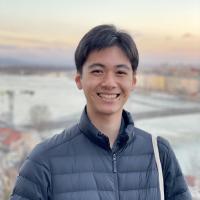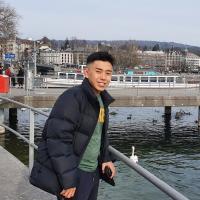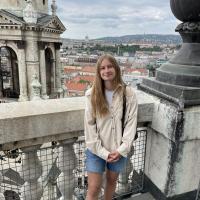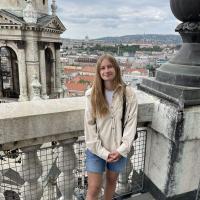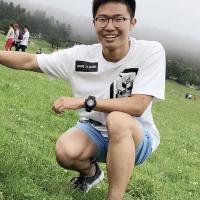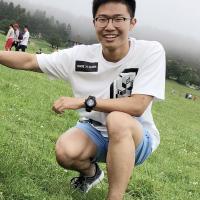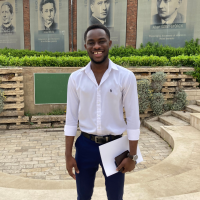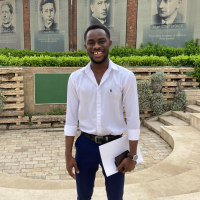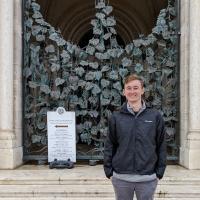Tailored to the needs of computer science and software engineering undergraduates from North American universities and colleges, AIT offers a semester-long Research Abroad program starting in Fall 2024. The program comprises 12 credits of research in the field of computer science augmented with 4-8-credits of coursework from AIT’s broad course offerings. Students choosing this track will primarily work with a designated research supervisor and their research group at one of the leading universities in Budapest. Research Abroad students will also be part of AIT’s international community, will participate in all AIT organized academic and extracurricular events, and enjoy the benefits of all AIT services.
Overview
| a top notch academic program... (12 research credits + 4-8 course credits) |
...and a fun and supportive study abroad experience |
|
|
The AIT Research Abroad story
Since 2011, students from top schools across the United States have been immersing themselves in computer science studies at AIT-Budapest. AIT now has partnerships with over 80 schools in the U.S. and has contributed to the education of over 1500 accomplished alumni worldwide.
A dynamic educator, Prof. Roland Molontay, leads the Data Science course at AIT and extends an invitation to interested students to join the research groups led by his colleagues at Budapest Technical University (BME) and other renowned universities in Budapest. In 2020, a team of four undergraduates participated in Prof. Molontay's research endeavor that garnered publication in Applied Network Science by Springer, reaching an audience of over 22,000 readers. Among the contributors was an AIT student from Colorado College who later earned a Fulbright scholarship. This student then returned to Budapest to further their research with Prof. Molontay's group. This initiative not only provided invaluable academic experience but also fostered impactful international collaborations among talented young researchers.
Inspired by such achievements, AIT introduced the Research Abroad program, aimed at students eager to explore research careers while embracing cultural immersion in Hungary.
Who should apply?
We are seeking candidates who:
- Have a keen interest in exploring their potential for an academic/research career;
- Have a generally strong academic record and demonstrated evidence of intellectual curiosity; while most successful applicants will have a GPA of at least 3.0 on a 4-point scale, every applicant is evaluated individually and there are no automatic GPA cut-offs; and
- Have computational and mathematical sophistication (although need not be a computer science major) including:
- At least one course that involves programming and proficiency in at least one programming language such as Python, Java, C++, or R;
- Exposure to concepts in data structures; and
- Mathematical maturity developed through a college mathematics course beyond calculus (e.g. linear algebra, discrete mathematics, etc.).
Syllabus
Students have the flexibility to choose from a list of research projects. The list of projects is different every semester and is listed on this website. Students will primarily work with a designated research supervisor and collaborate with peers (depending on the project's nature). This 12-credit course requires roughly 25 hours work / week. Over the span of the semester, this results in approximately 360 hours of work including individual research, group work, and participation in workshops. This immersive experience involves investigating the role of literature exploration in shaping research hypotheses and plans, fostering collaborative teamwork, and refining skills in clearly communicating research results.
Duration: 14 weeks
Credit load: 12 credits (360 hours of work)
Aim of the course
The objective of the course entails the synthesis of all coursework into a comprehensive report, as detailed below, and preferably, the production of a research paper, although the latter is not mandatory due to time constraints. Participation in the research course holds the potential to markedly bolster the early stages of a scientific career in research, with outcomes possibly presented at national undergraduate gatherings, seminars, or international scientific symposiums, contingent upon the level of progress achieved.
Prerequisites
Strong Academic Background: Applicants should have a solid academic record in computer science, data science, mathematics, or related fields.
Programming Skills: Proficiency in at least one programming language such as Python, Java, C++, or R is essential.
Mathematical Foundations: A good understanding of mathematical concepts including calculus, linear algebra, probability, and statistics is crucial.
Some projects may have specific academic prerequisites or coursework requirements that applicants need to fulfill before being eligible for those projects. Please read the detailed Research project description carefully.
Method of instruction
Students will become participating members of a research group, will formulate research goals, and devise experimental strategies under the guidance of their professors that includes:
- Participation in Diverse Activities - Engaging in study design, model evaluation, data analysis, findings communication, and application of scientific techniques and methods;
- Hypothesis Generation and Research Direction - Students, assisted by their supervisor, actively generate hypotheses and have the freedom to choose the direction of their research;
- Methodological Autonomy - With guidance from their supervisors, students determine the most effective methods for answering their research questions, whether by developing new approaches or selecting from existing methodologies;
- Literature Review - Students conduct a comprehensive review of the literature to understand the current state of knowledge related to their research topics;
- Continuous Learning and Adaptation - Students consistently build upon their knowledge and critically reassess procedures, modifying them when necessary;
- Results Sharing - Students present their findings at the Week 3, Week 7, and Week 13 workshops, offering insights beyond the lab where the project originated; and
- Collaborative Environment - Students actively collaborate with other researchers in the lab, fostering a dynamic and cooperative research atmosphere.
Structure of the course
The program requires continuous structured individual research and group work throughout the entire duration of the semester. Aiding students to complete their research goals, regular weekly meetings are scheduled with the supervisors. Besides the weekly meetings, the semester consist of the following activities:
Week 1 – Academic Research Workshop:
- Overview of the research process, covering steps from problem identification to reporting discoveries;
- Exploration of the qualities that define a 'good researcher'; and
- Insights and tips for navigating scientific publications.
Week 3 – Kick-off Mini Workshop:
- The initial two weeks involve discussing, gathering, and studying background information for individual projects.
- During the third week, each research student or group presents their project problem in a concise 10-minute talk at a mini workshop attended by fellow participants, professors, and other interested individuals.
Week 7 – Mid-term Workshop (Research communication workshop + status reports):
The mid-term workshop has two main parts:
- Status report: Students provide a mid-term status update.
- Research communication workshop: Knowing how to effectively communicate research with non-experts requires a certain skill set that can be learned and developed with practice. This training will provide the students with the core tools and techniques to help communicate any piece of research, published or unpublished, to a variety of different audiences. It covers the essential steps, including identifying communication goals, understanding different audiences, and crafting a key and sticking message. The workshop also explores the different communication methods and channels available.
Week 13/14 – Final Workshop:
- Final presentations by students; and
- Deadline for submitting the comprehensive report summarizing the semester's work.
Result Write-Up:
- If the obtained research results are substantial, and students are interested in drafting a paper of publishable, quality then the drafting process will go continuously throughout the semester, and possibly extending beyond the term.
Grading
Research work is assessed on an A-F scale. Official transcripts are issued in the ECTS credit system by the Budapest University of Technology and Economics.
The final grade is based on four components: 10% for participation in group projects, 30% for individual research, 30% for the midterm and final workshop results, and 30% for the result write-up.
Proposed research projects in 2024 Fall
| Research project | Supervisor | |
|---|---|---|
| 1. | Exploring Cutting-Edge Machine Learning Applications in the Medical Domain | András Bencúr HUN REN SZTAKI, Informatics Laboratory |
| 2. | Unraveling Complex Networks: Graph Embedding and Neural Networks for Social and Cryptocurrency Analysis | |
| 3. | Decoding Digital Humor: Navigating the Landscape of Social Media and Meme Virality Using Data Science Tools | Roland Molontay BME Human and Social Data Science Lab |
| 4. | Unveiling the True Impact of Scientific Research: Mitigating Citation Gaming for Accurate Evaluation | |
| 5. | Investigating the Role of Artificial Intelligence in Modern Software Engineering | Péter Ekler BME Department of Automation and Applied Informatics |
| 6. | Exploring the Possibilities of Using Artificial Intelligence in Business Intelligence Environments |
Application process
Application to the Research Abroad program has two rounds
- ROUND ONE: application to the AIT study abroad program:
- online application form with an essay detailing your interest in the proposed research project(s);
- specifying your preference order if interested in multiple research projects;
- two recommendation letters - At least one of them (ideally both) should be from a computer science, mathematics, or engineering professor, who can reflect on your potential as an undergraduate researcher and provide insights into why they believe you are prepared for such a project;
- approval from your home school’s study abroad office; and
- official transcript.
More details on AIT’s application process can be found here
- ROUND TWO: video meeting with the project supervisor(s):
After acceptance to AIT, the next step involves a personal interview (video meeting) with the applicant’s potential future supervisor. The aim of this meeting is to assess mutual compatibility and ensure that the applicant and potential supervisor feel that this project is a good fit for the applicant’s background and interests.Typical topics on this interview may include:
- What motivated you to apply for this Research Abroad program?
- Why are you interested in the specific research topic you've chosen?
- What do you aim to achieve or learn from this research experience?
- How do you anticipate adapting to a new academic and cultural environment while conducting Research Abroad?
- Research Abroad involves collaboration with international peers and mentors. How do you approach building effective relationships and collaborating across cultural boundaries?
- Can you discuss any challenges you anticipate facing while conducting Research Abroad and how you plan to address them?
- Can you tell us about your previous research experiences, if any, and how they have prepared you for this program?
- What technical skills do you possess that you believe will be beneficial for this research program?
- Can you discuss any specific research methodologies or techniques you are familiar with and ways you have applied them in past projects?
If the applicant and/or supervisor believe that the research track is not an ideal fit, the applicant is welcome to enroll in AIT’s regular course-based study abroad program.
Application deadline
Application deadlines are the same as the regular AIT program deadlines: March 15 for the following Fall semester and October 1 for the Spring semester of the next year.
For 2024 Fall semester the application deadline is extended until April 15.
More details here.
Application form
Application form is available here.
Tuition costs (in US Currency)
- 2024 fall semester - $19,000
- 2025 spring semester - $19,000
Tuition covers participation in the Research project, taking AIT courses with individual mentoring by the faculty, and personal attention by the AIT staff (such as airport pick-up, orientation, housing assistance, etc).
Go to this link for tuition deadlines, refund, and cost estimation details.
